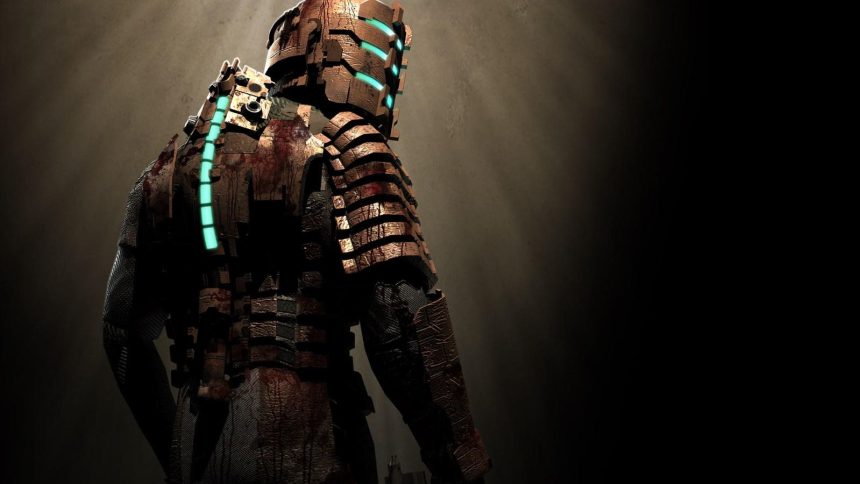The gaming community has recently expressed disappointment over reports that Electronic Arts (EA) rejected a pitch for a fourth installment in the beloved Dead Space series. This revelation stemmed from an interview with key figures behind the original Dead Space games – Bret Robbins, Glen Schofield, and Christopher Stone – who confirmed they had proposed a Dead Space 4, but EA declined the idea. While the developers acknowledged EA’s right to make such decisions based on their internal metrics, they also hinted at the industry’s current climate, where publishers are often hesitant to invest in projects perceived as risky, potentially leaving many innovative ideas unrealized. This rejection marks another instance where a highly-regarded single-player franchise has struggled to secure funding for a continuation in today’s gaming landscape, dominated by live-service titles and established franchises.
The Dead Space series holds a nostalgic place in the hearts of many gamers. The original game, launched in 2008, garnered critical acclaim and commercial success, spawning two sequels in 2011 and 2013. The survival horror franchise distinguished itself with its atmospheric setting, visceral combat, and gripping narrative, earning a dedicated fanbase. However, the closure of Visceral Games, the studio behind Dead Space, by EA in 2017 signaled a potential shift in the publisher’s priorities, raising concerns about the future of the franchise. Despite the studio’s closure, the glimmer of hope for the series’ revival remained, especially after the successful launch of the Dead Space remake in 2023. The remake’s positive reception suggested a renewed interest in the franchise, but EA’s reported dissatisfaction with its sales further complicated the possibility of future installments.
While the Dead Space remake was generally well-received by critics and players alike, garnering “Very Positive” reviews on Steam and an impressive Metacritic score of 89, EA reportedly considered its sales performance underwhelming. The company had apparently targeted sales figures of around 5 million units, but the remake is estimated to have sold only 2 million. This perceived underperformance reportedly led to the cancellation of a planned Dead Space 2 remake, a rumor later denied by EA. Nevertheless, the absence of any concrete announcements regarding a Dead Space 2 remake fuels speculation that the project is, at the very least, on hold. This perceived underperformance, coupled with EA’s risk-averse approach, casts a significant shadow over the prospects of a Dead Space 4.
EA’s reluctance to greenlight a Dead Space 4 reflects a broader trend within the gaming industry, where publishers often prioritize projects perceived as safe bets, such as live-service games and established franchises, over potentially riskier single-player titles. This cautious approach is driven by various factors, including the escalating development costs of AAA games, the increasing popularity of games-as-a-service models, and the perceived lower return on investment for single-player experiences. While single-player games continue to have a dedicated audience, publishers often hesitate to invest heavily in them, preferring to focus on projects with a higher potential for long-term revenue generation through microtransactions, expansions, and ongoing content updates.
EA’s decision regarding Dead Space is not an isolated incident; the company has demonstrated a similar approach with other potential single-player titles. The cancellation of Titanfall 3, in favor of the highly successful battle royale game Apex Legends, exemplifies this strategy. While Apex Legends proved to be a lucrative venture, the decision effectively sidelined a highly anticipated single-player experience. EA’s portfolio is heavily reliant on its extensive catalog of sports games and live-service titles, with occasional forays into the single-player realm, such as the Star Wars Jedi series developed by Respawn Entertainment. However, even successful single-player titles like the Jedi series haven’t seemingly shifted EA’s overall focus. Other single-player attempts, like BioWare’s Dragon Age: Dreadwolf, have yet to demonstrate the kind of market impact that might encourage EA to further invest in these kinds of experiences.
The current state of the gaming industry, coupled with EA’s apparent risk aversion, makes the prospect of a Dead Space 4 seem highly unlikely. While the franchise retains a dedicated fanbase and the Dead Space remake demonstrated the potential for a successful revival, EA’s perceived emphasis on proven revenue streams and its reported dissatisfaction with the remake’s sales performance suggest that a full-fledged sequel is not a priority for the publisher. This decision is undoubtedly disappointing for fans eager to delve further into the Dead Space universe, but it reflects the prevailing industry trends and the inherent challenges faced by single-player titles in an era dominated by live-service games and established franchises. The future of Dead Space remains uncertain, leaving fans to wonder what could have been and hoping for a potential change in EA’s strategy down the line.



